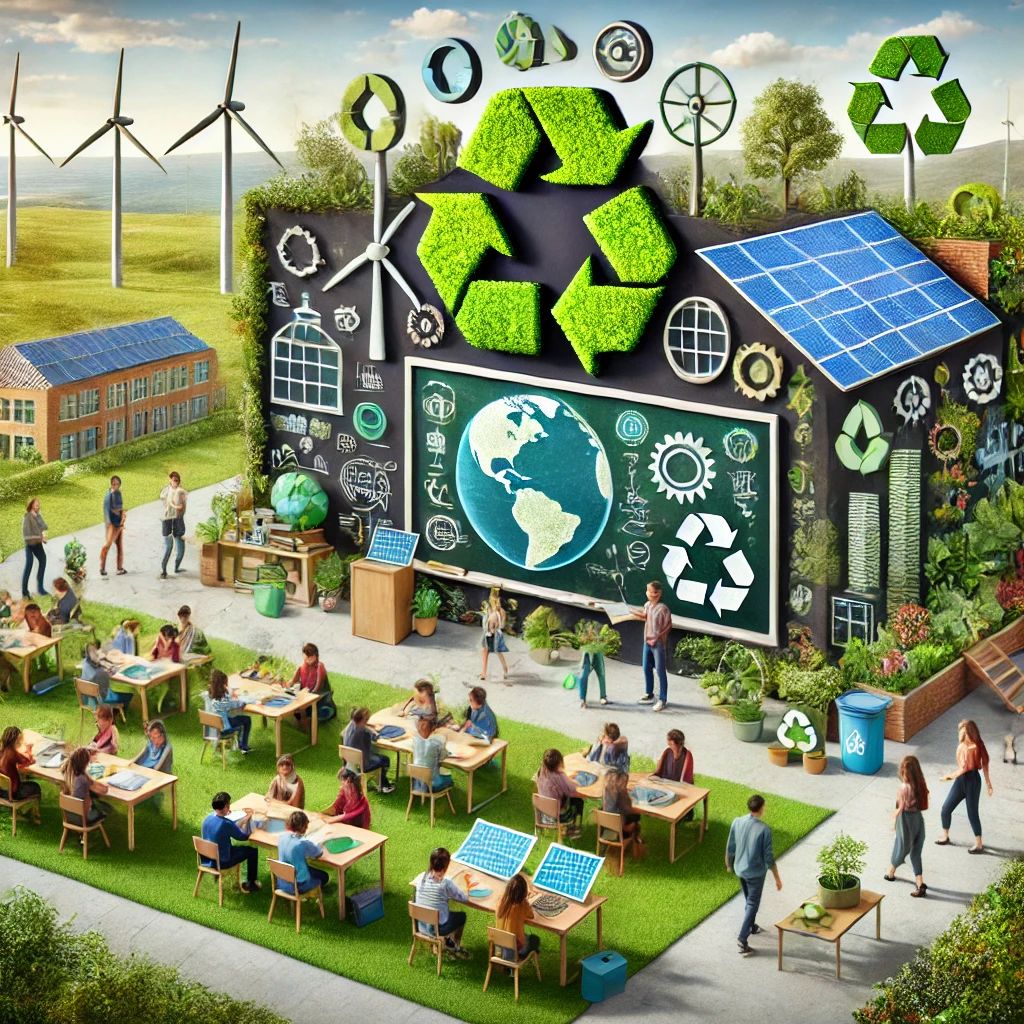UN Day Celebration:

The evidence of climate change is all around us, from melting glaciers and rising sea levels to extreme weather events and dwindling biodiversity. The urgency of the situation demands action, not just from governments and industries, but from each and every one of us. And it is through education that we can empower individuals to become the changemakers our planet desperately needs.
Imagine a world where every student, regardless of background or location, graduates with a deep understanding of environmental challenges and the skills to address them. Imagine classrooms transformed into hubs of innovation, where students aren’t just learning about renewable energy but designing and building solar-powered devices. Imagine campuses that are models of sustainability, demonstrating the very principles they teach.
This vision requires a fundamental shift in how we approach education. We need to move beyond rote memorization and standardized tests and cultivate the critical thinking, problem-solving, and systems thinking skills necessary to tackle complex environmental issues. We need to foster a generation of individuals who can:
- Analyze the intricate connections between human actions and environmental consequences.
- Evaluate information critically and identify biases in the often-polarized climate change discourse.
- Develop creative and collaborative solutions to local and global environmental challenges.
- Communicate effectively and advocate for policies that promote sustainability.
This transformation requires a holistic approach, integrating sustainability across all disciplines. From Agriculture, Science and Technology to Economics and the Arts, every subject has a role to play in shaping a sustainable future. Imagine:
- Interdisciplinary courses that explore the intersection of climate change, social justice, and economic development.
- Real-world case studies and project-based learning that allow students to apply their knowledge to local environmental issues.
- Partnerships with community organizations and businesses that provide hands-on experience in sustainability initiatives.
But knowledge alone is not enough. We must empower students to become active agents of change, fostering within them a deep sense of responsibility for the planet. This means encouraging them to view themselves not as passive bystanders, but as vital contributors to the solutions we so desperately need. We must provide them with opportunities to develop their leadership skills, engage in civic action, and become passionate advocates for environmental causes. Furthermore, we must nurture their innovative spirit and entrepreneurial drive, supporting them in developing green technologies and sustainable businesses that will shape a brighter future.
This vision aligns perfectly with the Sustainable Development Goals, particularly SDG 4 on Quality Education, which emphasizes the importance of “ensuring inclusive and equitable quality education and promoting lifelong learning opportunities for all.” By embracing this goal and reimagining education through the lens of sustainability, we can empower future generations to build a world that is not only environmentally sound but also socially just and economically prosperous.
The time for action is now. Let us invest in quality education that prioritizes sustainability. Let us empower students to become the architects of a greener, more equitable future. The fate of our planet depends on it.
WFE (under the aegis of BESTIU, a state-private university of Andhra Pradesh) is dedicated to exploring these facets and more. Through dialogues, roundtables, and by bringing together experts whose voices matter, we aim to contribute to a sustainable future. By fostering these crucial conversations and translating ideas into action, we can collectively pave the way for a greener, more equitable world.
